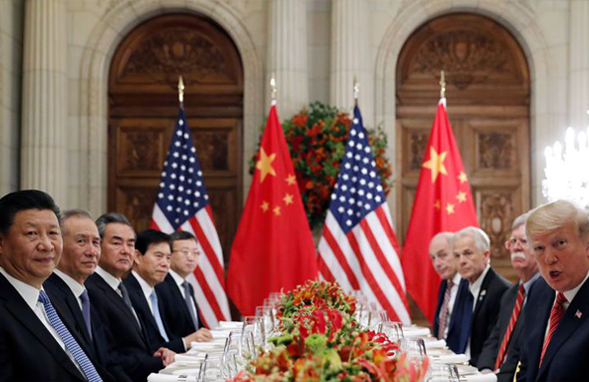Post the G-20 Summit US President Donald Trump and his Chinese counterpart Xi Jinping agreed to halt tariffs against each others’ goods for 90 days for talks to resume
After the conclusion of the G20 Summit at Buenos Aires, Mr Trump and Mr Jinping agreed to talk face-to-face and halt their trade war, which had erupted when Mr Trump complained that China was not doing anything to cut its large surplus in bilateral trade. Mr Trump has agreed not to boost tariffs on $200bn (£157bn) of Chinese goods from 10% to 25% on 1 January. In return, Chine will buy a “very substantial” amount of agricultural, industrial and energy products from the USA. Both countries have agreed to open up their markets for the time being.
According to a statement by the White House, “If at the end of this period of time, the parties are unable to reach an agreement, the 10 percent tariffs will be raised to 25 percent.” Separately, China said that it is “open to approving the previously unapproved Qualcomm-NXP deal”, the White House says. In July, US firm Qualcomm – the world’s biggest chipmaker – was forced to walk away from a $44bn bid for Dutch rival NXP Semiconductors after China regulators refused to allow it. It was a high-profile victim of the Sino-US trade war. Had it happened, it would have been the biggest semiconductor takeover globally.
Yet, in the joint statement that has been issued by both parties, protectionism was not criticised. Chinese Foreign Minister Wang Yi told reporters after the talks that “the principal agreement has effectively prevented further expansion of economic friction between the two countries”.
The US has hit $250bn of Chinese goods with tariffs since July, and China has retaliated by imposing duties on $110bn of US products.









